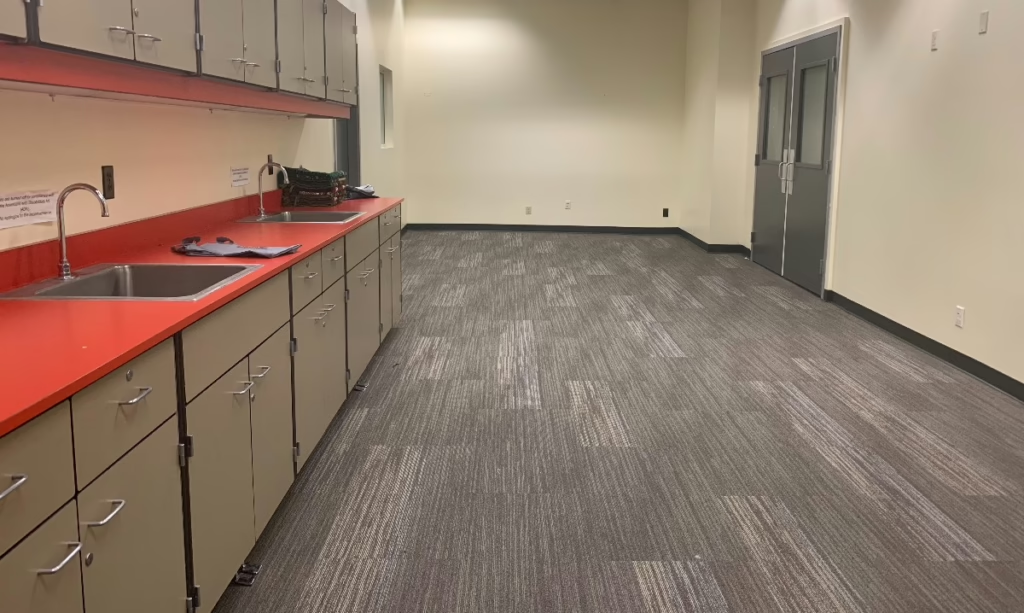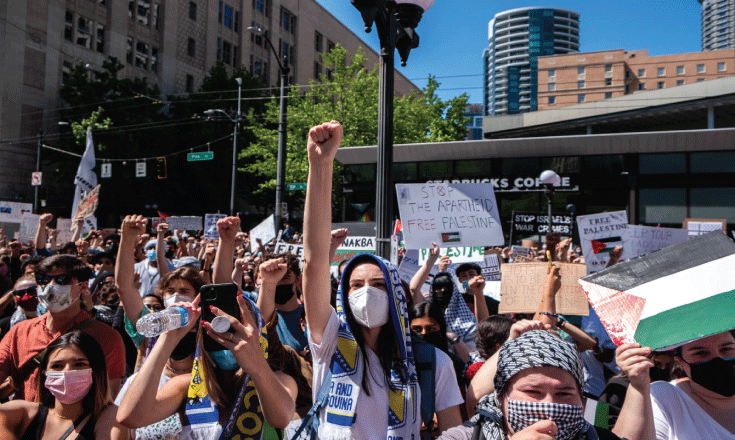Reflection Room left untouched for years, do Muslim students feel prioritized on campus?
Conversation around the Meditation/Reflection Room began in August 2017, intending to open the space at the beginning of the academic year. Lyall Rudenskjold, former assistant director of the multicultural services (EDIC), spearheaded the endeavor.
The creation of the Reflection Room was “in response to a need from Muslim students, particularly from BTSD” (Basic and Transitional Studies Dept.), Ruby Hansra, a counselor at Central, wrote to the Collegian.
As Muslims, we pray five times a day at set schedules. Depending on how long a student stays on campus, they would need to pray at least once and at most four times. A prayer at noon (Dhuhr), mid-afternoon (Asr), when the sun sets (Maghrib), and at the beginning of the night (Isha).
Prayer is the illumination of light, a connection between Allah and his humble servant. A sense of serenity and peace befalls a person that prays. Therefore, the room you pray in should magnify that feeling, not reduce it.
“The reflection room is the opposite of what it should be. There are no windows. It’s a gloomy and sad room. Definitely not a place where you’d want to sit and reflect, or even pray,” said an anonymous source.
Fardosa Mohamed, a student at Central, agreed with that sentiment, “I feel ungrateful saying this, because we do have a space, but it doesn’t seem like a place where I’d want to pray and practice my faith.”
Since Central is classified as a public institution, it’s required to follow federal and state laws, including the First Amendment, “Congress shall make no law respecting an establishment of religion.”
Many public institutions follow the amendment by creating inter-faith spaces. Making an accommodation for all faiths prevents an “establishment of religion.”
Even if Muslim students request a prayer room, it cannot be made solely for people of the Islamic faith—if done, it’ll seem like the school is favoring one religion over the other.
In an article from The Chronicle of Higher Education, Charles Haynes, vice president of the Newseum Institute and founder of its Religious Freedom Center, says “It’s such a misreading of the First Amendment to say that a public university can’t accommodate religion.” Public institutions can accommodate students’ religious needs, he says, “in a way that doesn’t take the university to the level of promoting one or more religions over other religions.”
Students didn’t seem to have a problem sharing the space with others. “Although it would be nice to have a space designated for Muslim students, it’s not my first concern,” said Sawda Hirabe. “As long as the Reflection Room accommodates all of our needs, it’s not a problem.”
Both Mohamed and Hirabe say that the reflection room lacks in one particular department—there is no segregation between genders.
In the Islamic faith, a woman shouldn’t pray in front of the opposite gender. In mosques, dividers segregate males and females.
“Sometimes I see men waiting outside of the room until the women finish praying. It’s out of respect, but something should be done so they don’t have to miss their prayer as a result,” said Mohamed.
The students inquired about having a space for Muslim women to pray, and the answer lay in the Mitchell Activity Center (MAC), where Paul Carter, Rec Specialist 2, was making efforts to create “female-only programming.”

Initially, Carter wanted to carve out time weekly to create a weight room program for women. He met with Maikaila Harris, Director of (Equality, Diversity, & Inclusion) EDI at Seattle Central, Yiqiu Cai (Teddy) Navigator EDI at Seattle Central, and Megan Valerio, Director of Wellness at North Seattle regarding the weight room program, but they couldn’t find a way to work around Title IX, which states, “No person in the United States shall, on the basis of sex, be excluded from participation in, be denied the benefits of, or be subjected to discrimination under any education program or activity receiving Federal financial assistance[.]”
Instead, he pivoted to creating a prayer room for Muslim women at the MAC, hoping this time, his idea would get through.
“My front desk person, Khadija, talked about young ladies needing a place to pray. She mentioned the Muslim Women Association, and I was telling her to tell them to come, we’ll set up a space for them,” said Carter.
But he ran into the same obstacle, like the weight room program he wanted to create, the prayer room couldn’t be advertised as a “female-only” space due to Title IX restrictions, despite the religious angle.
“I can’t formally announce this as women’s only thing, but if the association wants to use a room, I’ll provide a room just for them,” he said.
As a space is being set up in the MAC, Fatimah Abdullahi, ASC exec officer of admin and Nina Lopez, exec of student success attempt to make the Reflection Room a nicer place.
“I want people to enjoy a space that matters to them. It’s the very least we can do,” said Lopez.

The room is currently empty, but they plan on getting plants, dividers to separate the men and women when praying, cushions, nicer prayer mats, and incense.
“One of our goals at ASC (Associated Student Council) this year was to make students’ lives better,” Fatimah said. “We realized that there are many Muslim Students, but questioned whether they felt prioritized on campus.”







